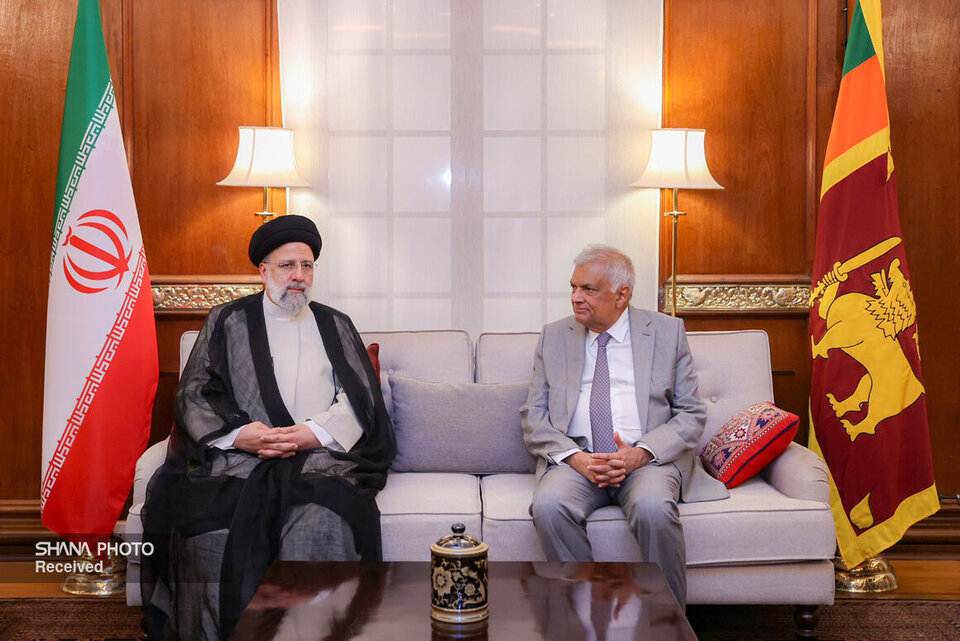Iranian president, Ibrahim Raisie, made the remarks during a joint press conference with his Sri Lankan counterpart, Ranil Wickremesinghe, April 24, adding the two countries’ friendly relations after the victory of the Islamic Revolution in Iran in 1979, have been consistently expanding.
Raisie added: in my negotiations with the Sri Lankan President, there was a consensus that we should continue promoting our bilateral cooperation in issues like tourism, agriculture, industry, trade, culture, science and technology.
“I would like to tell the people and officials of Sri Lanka that threats and sanctions against our country have failed to stop us from making progress, so that despite harsh sanctions it could be said that Iran is now an advanced country wielding capable technology.” The president said.
Elsewhere in his remarks, Raisie said that the two countries reached an agreement to set up a joint committee, with the two countries' foreign ministers being given a mission to establish it as soon as possible.
During the press conference held in Colombo, Sri Lankan president, Ranil Wickremesinghe, also said: today, 24 April, we witnessed the inauguration of a multipurpose dam project which generates 120 MW of electricity and I would like to thank Iran for building the dam and transferring the related know-how.
“We could implement and operate successfully a Joint project and that is why I would like to thank the Iranian people and congratulate them for achieving electricity generating as well as water transfer and dam construction technologies.
He further said: Iran’s support helped us to achieve economic stability and I would like to take the opportunity here to appreciate these continuous supports over the several past years.
Before travelling to Sri Lanka on Wednesday, Iranian president, Ibrahim Raisie, visited Pakistan at the head of a high-ranking delegation which included Minister of Petroleum, Javad Owji.
During the visit to Islamabad, the two sides decided to boost the volume of annual bilateral trade to as much as 10 billion dollars, implying a five-fold increase when compared with current level of trade which stands at nearly 2 billion dollars.
As far as it concerns energy cooperation, the revival of the Iran-Pakistan gas pipeline was one of the main issues the two sides held talks about. Islamabad, among the other things, is under pressure from the U.S not to implement the project.
The Iran-Pakistan gas pipeline project has already been completed in Iran’s territory and there are reports that Islamabad has started negotiations with a number of companies to kick off pipeline-laying operations in its soil. Pakistan is in dire need of natural gas to help its people to gain access to clean energy.


Your Comment